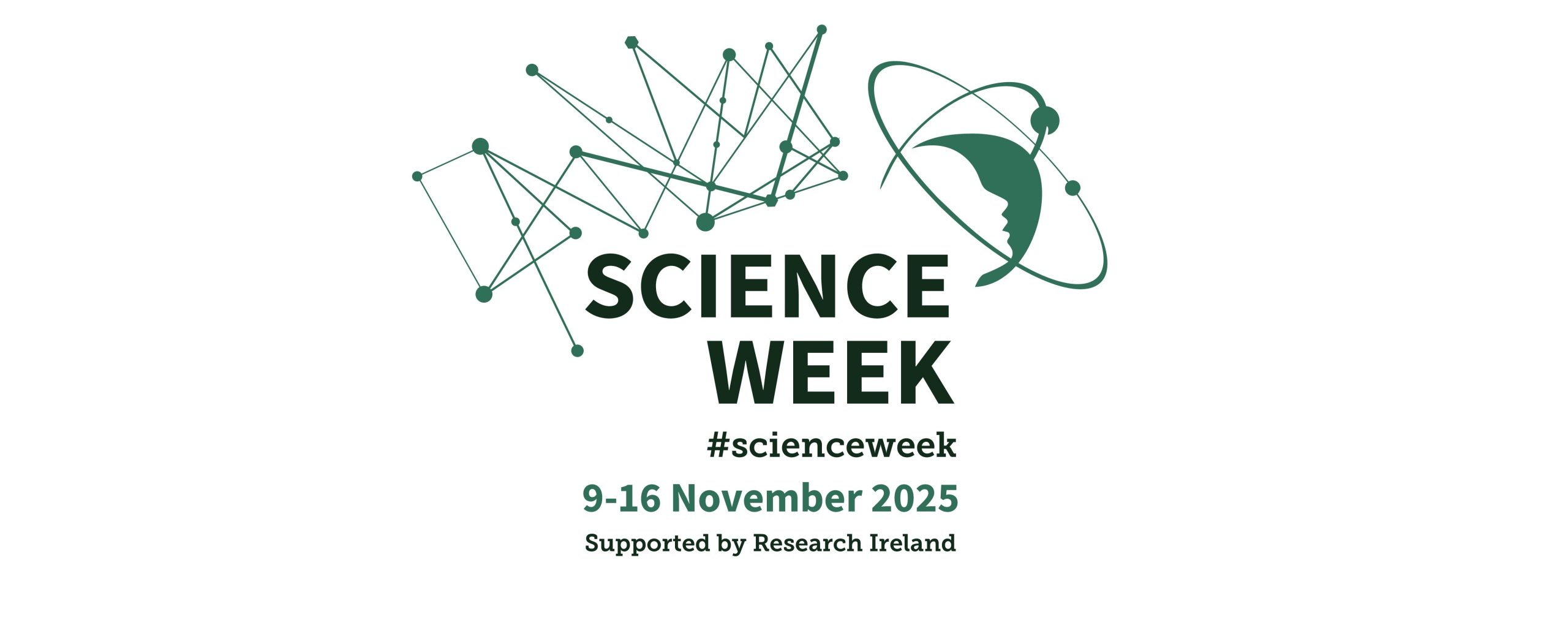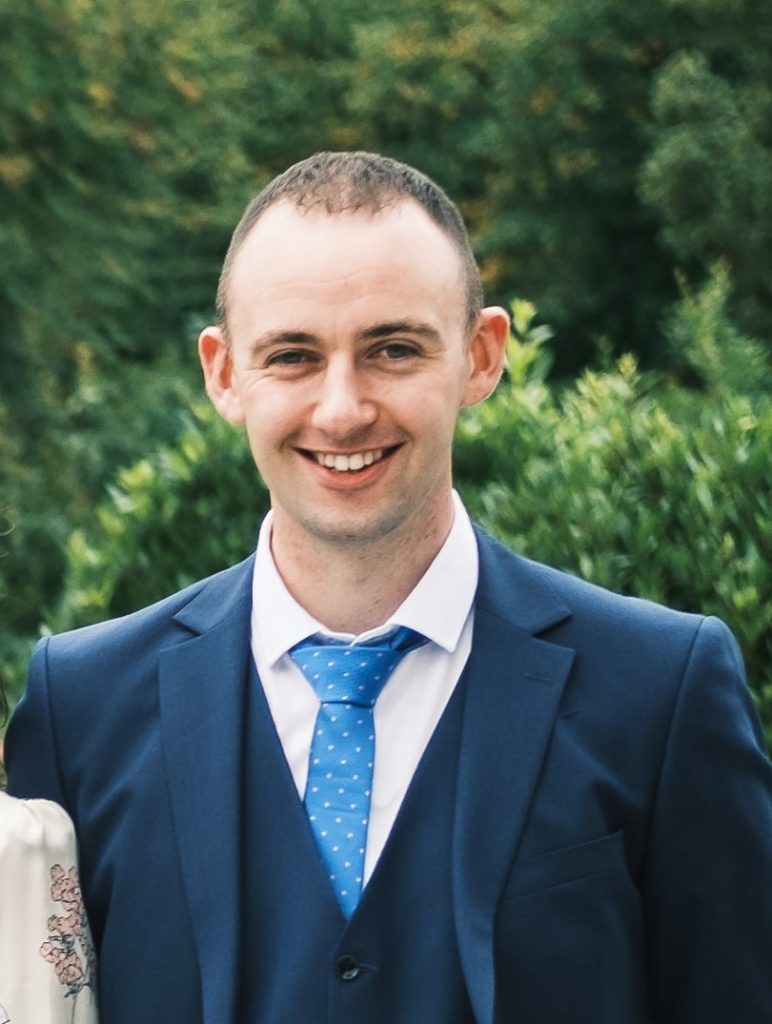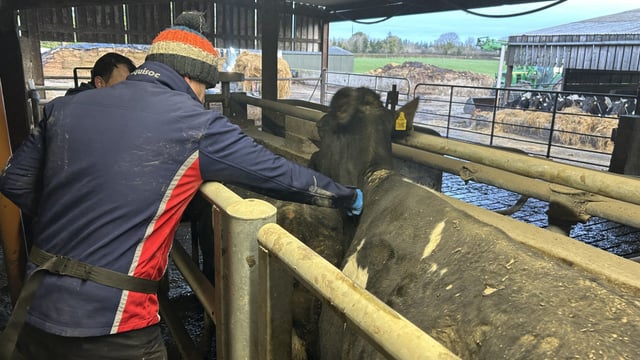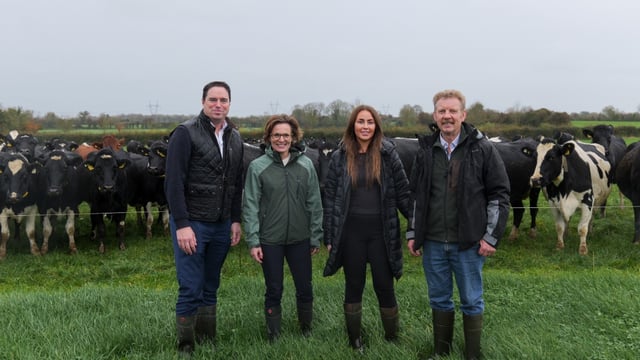Sponsored Article
Mental health: Researchers working to help farmers build resilience
Sponsored Article

With the theme 'Then. Today. Tomorrow.', Science Week is now in its 30th year, taking place from November 9-16.
A lot has changed in agriculture and farming over these decades.
Then: Mental health and the effects of stress were a 'taboo' subject in farming.
Today: Mental health in farming is being more openly discussed and understood, aided by research - but farmers face challenges due to climate change, for example, and evolving policies to combat it.
Tomorrow: Through continued research, and engagement between farmers and other stakeholders, Ireland can be a leader in sustainable food production, being sustainable not just environmentally but also economically and socially.
Agri Mental Health Group
Dr. Tomás Russell is playing a key role in the continued research on farmer mental health and wellbeing.
He is assistant professor in Agricultural Extension and Innovation at the School of Agriculture and Food Science, University College Dublin (UCD).
He is a founding member and co-director of the Agri Mental Health Group at UCD, which brings together a team of agricultural scientists and psychologists cultivating evidence-based practice around mental health in agriculture.
Dr. Russell's research is focused on agri mental health, farm succession, and inheritance.
His teaching involves training people to become agricultural advisers and work with farmers.
He is a young farmer himself, farming in partnership with his father in Co. Offaly.
He previously also worked as an agricultural adviser, and he finds himself able to reflect on these experiences in his academic roles.
The Agri Mental Health Group is comprised of researchers from various institutions, not just UCD, with expertise in a "broad group of disciplines", from agricultural science to psychology to sociology and health sciences, Dr. Russell explained.
He said that the group came about as a result of feedback from graduate advisers and students interacting and working with farmers, who found that topics of mental health were arising frequently.
Dr. Russell then reached out to Professor Louise McHugh of UCD's School of Psychology to initiate collaboration. She is also co-director of the Agri Mental Health Group.
Risk of suicide
Upon a research call by the HSE's National Office for Suicide Prevention, Dr. Russell said the team then started their first study in 2022, which found that 23.4% of the 256 farmers surveyed were considered at risk for suicide.
Dr. Russell said that of all the feedback received after these results were published, what stands out most in his mind is that they were described as "stark but not surprising", unfortunately.
The study was replicated in 2024, with 457 farmers surveyed, with similar results: 22.8% of farmers were at risk for suicide.
Dr. Russell explained that in the 2024 study, farmers were asked if they knew anyone who had died by suicide, and 82.1% identified that they had.
Stress
"In terms of the risk of suicide, stress was a big contributing factor," Dr. Russell said.
"Stress levels increased high risk of suicide and we asked farmers what were their key stressors.
"Both in 2022 and 2024, one of the key things that came out was government policy and climate change being a key stressor.
"They also identified the perception of farming by those not farming as a key contributing factor.
"When we delved a bit deeper into the government policy one, it was interesting because we found that it's not necessarily the policies themselves actually causing the issues, but farmers feeling like they don't have a voice in those policies."
Sow What?
This is what led to the 'Sow What?' project, Dr. Russell said, which is "looking at how we can improve communication and close the loop between policymakers and farmers".
The project is bringing together a multi-actor team of farmers, agricultural scientists, farming support workers, and agricultural advisers and psychologists.
This Environmental Protection Agency-funded project aims to develop communication tools that will improve farmer, agricultural adviser and policymaker understanding of each other's needs and dilemmas in relation to the European Green Deal.
The research project, which builds on the previous research by the Agri Mental Health Group, is focusing on identifying ways of cultivating pragmatic trust and cooperation between farmers and policymakers in relation to climate change reforms within Irish farming.
Research published just last month revealed that the main barriers to sustainable farming practices in Ireland are practical and social, rather than ideological.
The studies, carried out by the Agri Mental Health Group, identified economic pressures and perceived exclusion from policy development as the key challenges preventing farmers from adopting more sustainable practices.
Building resilience
Overall, the Agri Mental Health Group's research has a focus on developing evidence-based, culturally appropriate interventions and supports tailored for the farming community to protect and strengthen mental health.
According to Dr. Russell, they are piloting approaches such as acceptance and commitment therapy, to help farmers build resilience.
"This is useful as it helps individuals to build psychological flexibility, through accepting difficult thoughts and feelings as natural experiences and using innate skills to commit to actions that align with farmers’ values," he explained.
"This approach is trying to teach them skills that when things get really stressful, they are in a position to deal with it and have the skills to try and reduce the stress and protect themselves."
Science Week, which is coordinated by Research Ireland, runs from November 9-16, with 14 festivals and hundreds of events taking place nationwide. The theme for this year is ‘Then. Today. Tomorrow’.
Sponsored Article







